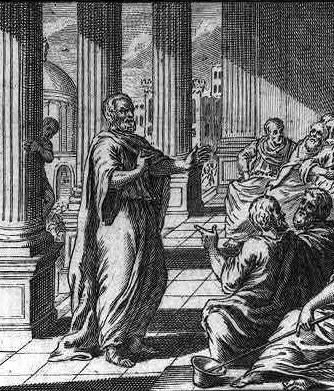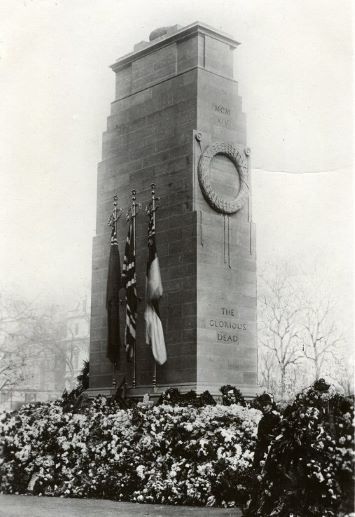June 2022

The modern practice of apologising for history has its supporters and detractors. The issue shows how history is still at work in the present. The passions aroused and the partisan approaches taken indicate that in some respects we are no more sophisticated than our medieval forbears. In classical times the ‘apologia’ was an argument of justification, a defence in a court of law, as in the case of Socrates’s famous ‘Apologia’. In a Christian world apology begins its slow evolution into a social politesse. But there was a widespread understanding that the point of apology is to excuse or justify something you have done. Indeed the origins of the ritual of Confession lie in this understanding. Generic apology or group atonement are less socially mechanised and may be misplaced. We might be pained by things that were done in the past: the massacres, the enslavements, the cruelties, inequities. We can recognise the whole catalogue of man’s inhumanity to man. But we can’t undo these unpleasant things and we can’t apologise to wronged people who are dead. We need a more sophisticated and informed understanding of the past and our attitude towards it.

The common line is that we learn from history, or we learn from past mistakes in order to make sure they never happen again. Yet it is observable that the same dreadful things happen again and again. Having just recalled to memory the inhuman suffering and death of millions during the Second World War in the 80th Anniversary D-Day Commemoration services, we can see that the past can be honoured even though it is rarely learned from. Currently another war in Europe is occuring due to the violent egotism of one man and his dreams of restoring the world to the pattern of his own deluded mind. Nor is he alone. We do not learn from the past. We do not cease from war. As a species we are greedy, disputational and prone to violence.
All history has its dark side, usually the untold story of the mass suffering of the poor, the marginalised, the dispossessed and disenfranchised; in every age, the powerless suffer, always. Today we think often in terms of slavery and the immense suffering of countless individuals which produced abundant wealth for the few. In the Middle Ages it was the ordinary, landless common people, the ‘peasants’ or in some cases ‘serfs’ who laboured and starved and wept and whose stories went unrecorded. Is it possible a greater consciousness of this may be driving the apologetics of today? Or are we undergoing some sort of revival of the old religious requirement of ‘atonement’ for misdeeds, for our sins, which requires the making of amends, the expiation for offences? is there a rising common consciousness of wrongs done by our ancestors for which we either feel, or are told we feel, repentance, and for which we need to apologise? Such apologies, well-meaning though they may be, might simply be showing up the empty space left by a retreating belief in a forgiving God. For centuries in European culture, God was the dispenser and disposer of all things. God was the arbiter of history to whom people could turn in repentance. Without this supportive reassurance, is the unatoned past coming back to haunt us?
History is, on the whole, nasty, brutish and long. We cannot make wholesale apology for its misdemeanours, let alone its cruel injustices. What happened, happened. Somebody always derived benefit, somebody always suffered. And so it is today. What can we hope for then?
Perhaps the reverence we see at commemoration services, the enactments of national gratitude, the solemnity which approaches the nature of the sacramental, testifies to a certain need to sacralise history by preserving the memory of certain things that happened. Honouring sacrifices in war is probably the most reverential of all our commemorative rituals.
So recollection is deemed to be passed on from generation to generation and something is preserved. But what is preserved is not and can never be the original experience. What is passed on is something else, necessarily changed by time.
In my view that is only to be expected. Memory has no real continuity, either in the individual or the community. The great continuum throughout history is not memory but the human spirit. The best in humanity, we hope, is always preserved. Somehow. Somewhere. And in the life of nations it is the spirit of humanity that counts. The spirit and its living substance – people.
Memory, history, fact, fiction. Are they all aspects of the same ill-defined thing for which apologies are superfluous? One of the most creative thinkers on this subject was Hilary Mantel whose ‘historical’ novels were masterpieces of history, fiction, fact and memory interwoven into the finest kind of writing. In a striking sentence, which I hope I am not misquoting, she said: “As soon as we die we become fiction.” This struck me as a terrifically powerful thought, the kind of thought that invites more thought. Does it mean authentic life is lived life, so at death a person no longer ‘is’? Lived life is authentic, real, as it is lived. Anything else is fiction.Thus a person passes into fiction rather than historical fact.
This book takes up something of that idea. These stories are about people who, according to Hilary Mantell’s idea, have passed into fiction. And these stories aim to show, as far as possible, their ‘authentic’ lives. Lives lived in time, when they were existing as ‘fact’.